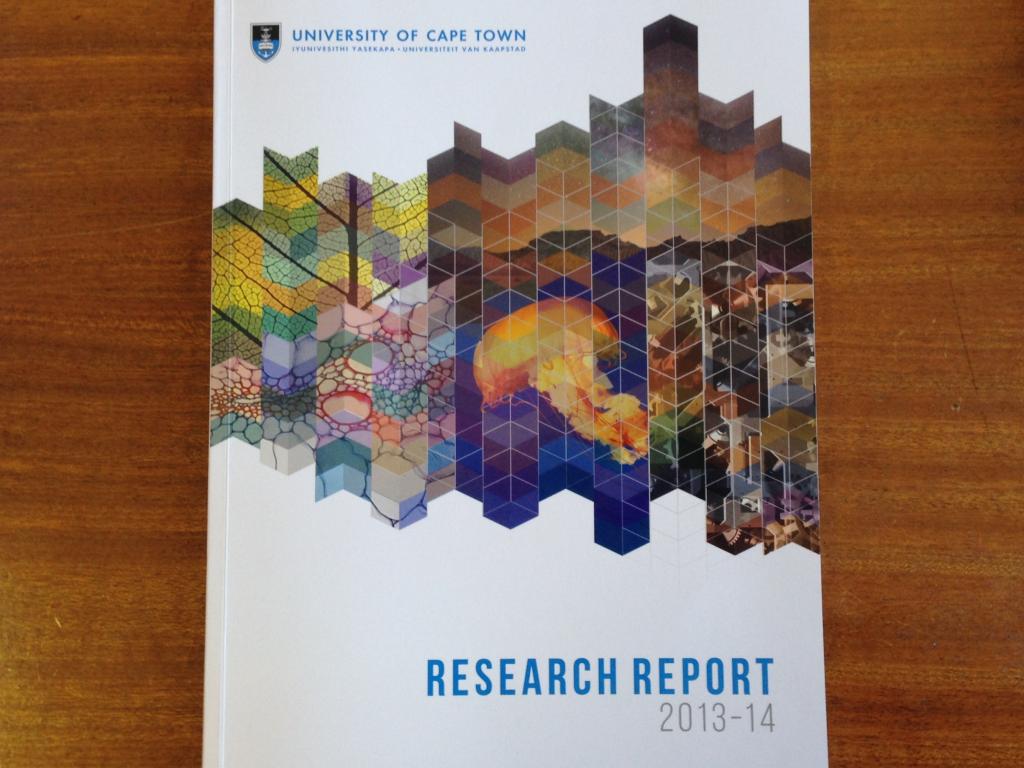UCT launches Research Report, values interdisciplinary research

On Thursday, August 28th, the University of Cape Town’s (UCT) Research Report for 2013-14 was launched, and the African Climate & Development Initiative featured prominently. Deputy Vice-Chancellor, Prof. Danie Visser, in the report praises UCT’s researchers for “expanding global knowledge in all directions, offering insight into global problems and innovation in strategies to solve them; contributing to public policy, the arts, our communities and the natural world.” He added: “In many areas of research, we lead the world and attract some of the very best local and international researchers.”
Prof. Visser addressed the issue of funding in the report, stating that UCT’s research successes can be attributed to funding from international governments and donors, which gives the university “real optimism for the future.” He believes that interdisciplinarity is a key pillar in UCT’s research strategy. “Over the past 20 years, there has been increasing recognition of the importance of research for the generation of new knowledge at the interfaces of disciplines in order to address complex societal issues, such as climate change, health and urban planning.”
UCT has managed to respond proactively to the call for interdisciplinarity with a number of strategies. One such strategy includes initiatives led by the Vice-Chancellor, such as the African Climate & Development Initiative (ACDI), which has an explicit mandate to contribute to tackling key issues in the social and natural worlds. Uniquely, the ACDI merges climate change issues with development issues, bringing together UCT’s breadth and depth of research and teaching in these areas, which previously were conducted largely in isolation within a variety of departments and research centres. As visualised in the report, ACDI reaches across faculties and fields such as biological sciences, law, statistical sciences, humanities, oceanography, and energy research, among others, to produce cutting-edge and relevant research.
The ACDI is also reaching out to external scientific communities to collaborate on significant research efforts. According to the report, challenges in interdisciplinary research include faculty and departmental structures and budgets. The report says that UCT, however, has set up a task team to analyse both barriers and enablers to interdisciplinary research and to come up with suggested strategies to encourage and enhance it.
ACDI also contributes to UCT’s goal of the internationalisation of its research – a core strategy in maintaining high quality research at the university. UCT primarily focuses on global partnerships, collaborative research and an increase in its postgraduate students to engage with the global research community. According to the research report, as the leading research university on the African continent, the University of Cape Town already provides a portal into Africa for universities abroad, acting as a principal engagement site for issues unique to our continent. The ACDI currently has a variety of local and international postgraduates interacting with its Master’s programme, as well as other activities - such as the regular Seminar Series - and it is also engaged with several projects, organisations and initiatives across the African continent.